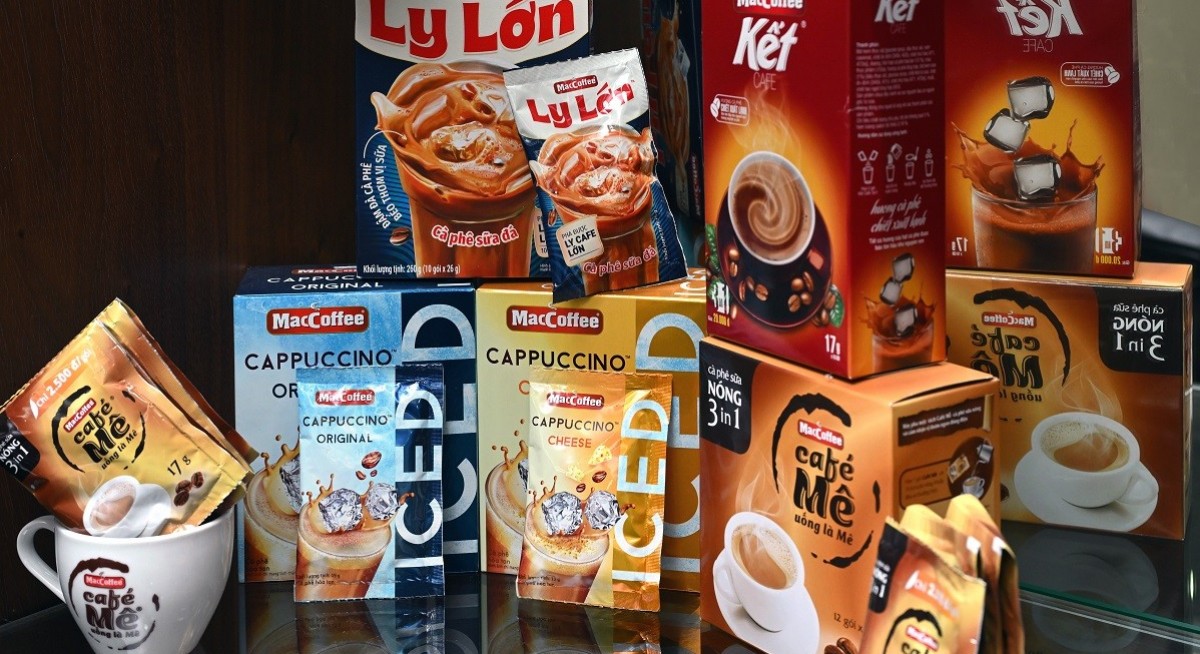"Food Empire has guided that the group will continue to invest in brand-building activities to keep up its growth momentum and further entrench its position in the instant coffee-mix space in Vietnam," states Tng in his June 26 note.
Vietnam has emerged as the company's fastest-growing market, with revenue from its branded beverage business up 46% y-o-y in 1QFY2025, driven by a larger sales force, more effective marketing which reinforced brand loyalty.
Another underappreciated growth driver, in Tng's view, is Food Empire's food ingredients manufacturing business. By the end of 1HFY2025, its expansion of a manufacturing facility in Johor will be done and production to begin in 3QFY2025. Its non-dairy creamer plant, also in Johor, is also seeing an increase in both capacity and utilisation rate.
Elsewhere, the company is building its first 3-in-1 coffee-mix manufacturing facility in Kazakhstan to be completed by the end of FY2025. According to Tng, this new facility will boost Food Empire's total coffee-mix production capacity by around 14-15% and enable it to grow its reach in Central Asia.
See also: PhillipCapital, UOB Kay Hian raise respective target prices for BRC Asia following 1QFY2026 earnings
This plant, which can potentially add an annual production capacity of 850 million sachets, will be on top of the company's existing combined capacity of six billion sachets from its plants in Russia, Ukraine, Malaysia and Vietnam.
According to Tng, citing the management, Food Empire expects a 10% net profit margin as a "reasonable" target, after taking into account factors such as higher operating costs and depreciation.
What makes Food Empire interesting is also its growth plans over the near to medium term. Last September, the company announced it is investing US$80 million to build a new Vietnam freeze-dried soluble coffee manufacturing facility by early 2028.
See also: Citi ups target prices on all three banks; prefers Singapore banks over SGX for EQDP play
Tng figures that at full utilisation, this new plant could generate revenue of US$40 million to US$60 million per year over FY2028 to FY2030 depending on product specifications and coffee prices then.
Given the company's "supportive" fundamentals, Tng has raised his target valuation multiple from 11.2x FY2026, to 14.2x FY2026, which is 2 sd above its 9-year average, leading to the higher target price of $2.28.
Even at 14.2x, Tng says that Food Empire is still trading at a 10.7% discount to the global sector average of 15.9x PE, which may reflect a valuation discount for its business in the Russia-Ukraine region which has a low probability of suffering from risks of the ongoing fight.
Tng sees another "non-fundamental" re-rating catalyst. With a market cap of US$734 million and three-month average daily traded value of US$0.8 million, Food Empire will be a "potential investible candidate" when the $5 billion market fund from the Monetary Authority of Singapore is deployed. "The additional demand boost would help raise Food Empire’s valuation, in our view," says Tng.
In addition, with Ikhlas Capital, an investor in the company via an issue of US$40 million worth of redeemable exchangeable notes, can lead to a potential secondary listing in Malaysia, or Hong Kong, possibly improving valuation, says Tng.
Individuals behind Ikhlas Capital include Nazir Razak, former CIMB chairman and before that, group CEO, and Gita Wirjawan, Indonesia’s Minister of Trade from 2011 to 2014.
Food Empire, having last announced a 1 for 5 bonus issue back in 2002, can consider another issue to reward shareholders, adds Tng.
Beyond the medium term, with the new contribution from new facilities in Vietnam coming on stream in FY2028 onwards, there's potential for Food Empire's share price to reach $2.60 to $2.95, says Tng.
Food Empire shares changed hands at $1.91 as at 2.15 pm, up 4.95%.




